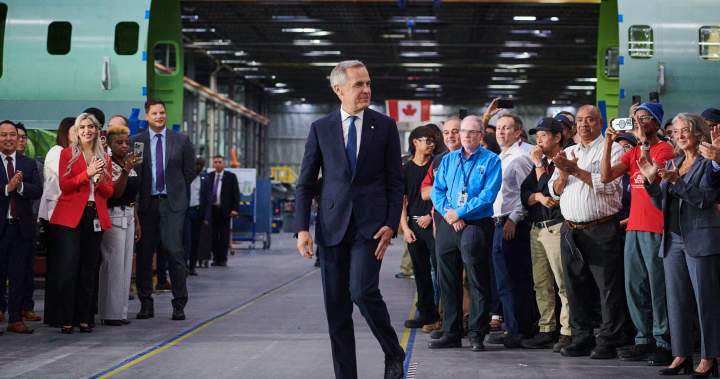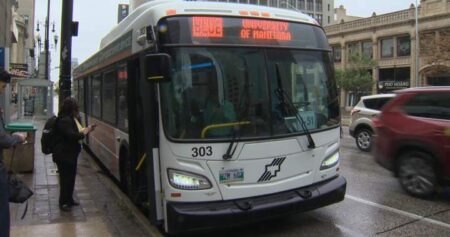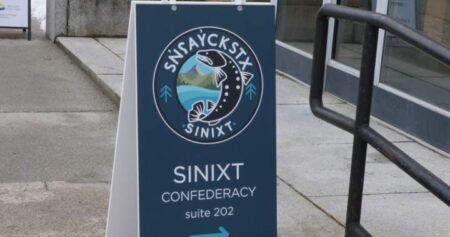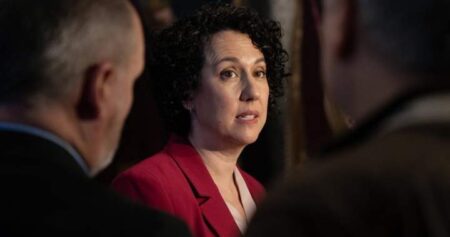Prime Minister Mark Carney says he’s going to “ensure the federal government buys from Canadian suppliers,” as he unveiled the new ‘Buy Canadian’ strategy.
The measures introduced on Friday include the waiver of the EV mandate for automakers and a relief package for canola farmers dealing with Chinese tariffs.
A “Buy Canadian” strategy is essentially a mandate for the federal government to use local content in major government projects.
The government has already put in place a similar policy for the use of Canadian steel and softwood lumber for federal projects.
In July, Carney had announced Canada would “restrict and reduce foreign steel imports entering the Canadian market.”

Get breaking National news
For news impacting Canada and around the world, sign up for breaking news alerts delivered directly to you when they happen.
When it came to using metal in major national infrastructure projects, Canada “will ensure Canadian steel and other Canadian materials are prioritized in construction,” he said.
Last month, the policy was extended to Canadian lumber. Carney said Canada would “require companies contracting with the federal government to source Canadian lumber.”
Friday’s announcement expands the policy from steel and lumber to all sectors of the economy.
“These initiatives will help workers acquire new skills and businesses retool their production and diversify their products, while spurring more domestic demand for Canadian businesses,” Carney said.
The government said it will extend this approach to all federal funding streams and Crown corporations, and “provide a roadmap for provinces and municipalities to apply similar standards to their own procurement.”
Friday’s announcement also included a $370 million package for canola farmers, who are facing a 75.8 per cent tariff from China. The package is meant to incentivize canola farmers to produce biofuel.
To facilitate this, the federal government will amend the Clean Fuel Regulations to “support the domestic biofuels industry.”
While U.S. President Donald Trump’s tariffs on Canada do not include goods traded under the Canada-U.S.-Mexico trade agreement (CUSMA), sectoral tariffs on Canadian steel, aluminum and autos remain.
In an effort to give relief to the tariff-hit Canadian auto sector, Carney said he was also waiving the Electric Vehicle mandate for 2026 – which previously required car makers to ensure a certain percentage of their vehicles were EVs.
Carney has also proposed the $5 billion Strategic Response Fund for firms hit by U.S. tariffs, which he promised during the federal election.
The new strategy also includes a reskilling program for up to 50,000 workers affected by tariffs.
The government will also “make Employment Insurance more flexible and with extended benefits.”
Carney’s announcement also included measures aimed at helping small businesses. The government will expand Business Development Bank of Canada loans for small and medium-sized enterprises (SMEs) to $5 million, he said.
Read the full article here

















